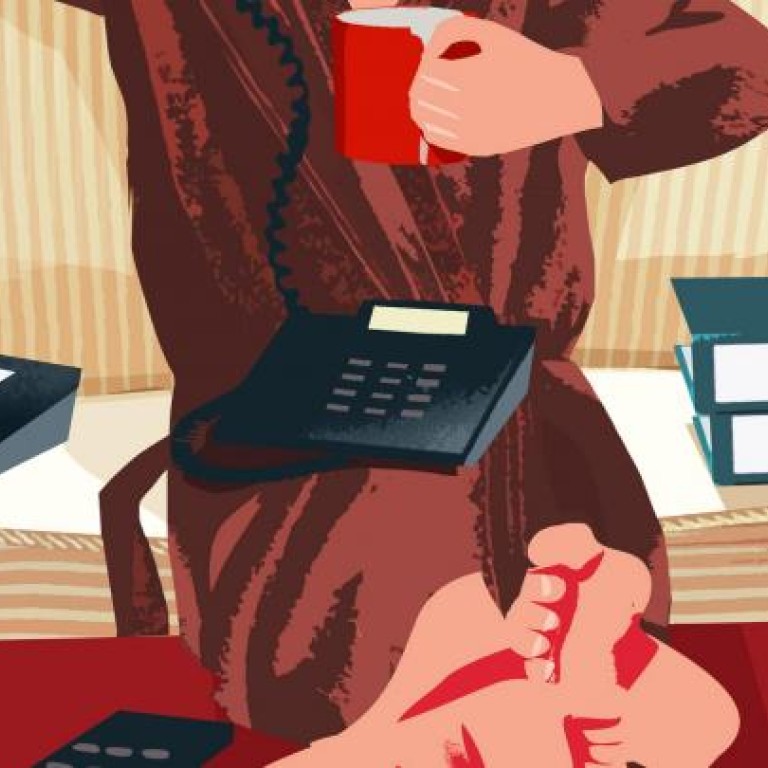
Digital Lifestyle: Welcome to Work 3.0
Is your employer checking your Facebook account? Probably - but your next boss will be a remote worker using computers to automatically monitor and cross-reference every digital trace of you, then automatically offer you a job. This is what analysts are calling Work 3.0, where companies will abandon costly hiring and firing, time-consuming interviews, and even office space for short-term online contracts automatically awarded to self-employed home workers with the right expertise for any given task.
We could all be about to become part of a "human cloud". "We're now at the tipping point of a workplace revolution," says Duncan Miller, international marketing communications manager at Mitel, whose research earlier this year into modern working practices helped coin the phrase Work 3.0. "New, innovative working environments will emerge that are no longer tied to a single location. Many employees will no longer operate from static, physical places, but will work within a human cloud, supporting companies from limitless locations."
Work 3.0 is primarily the product of new technology. The first phase, currently under way and probably something most of us have already done, is known as "bring your own device": you take your iPad to work, check your work e-mail on a smartphone, and often attempt to access the corporate network with your own gadgets.
Miller calls this trend "fundamental" in the workplace revolution since it's now workers, not bosses, who are setting the technology agenda. "Workers are choosing their devices and technologies, and how, where and when they want to work, taking more control of their working lives."
That technology is influencing how we work is no surprise, although in the next 20 years it could get very impersonal. "Complexity is on the increase and time to market is on the decrease, and with these challenges what we think of as a job will change," says IT commentator Peter Chadha, who thinks that companies will require more expertise to stay ahead of competitors, but only for short projects. "The web will make this more possible than ever, not only by giving them mechanisms to work with one another from remote locations using virtual reality technologies, but also by sourcing the individuals more dynamically."
The traditional job interview could fall prey to intelligent software algorithms that can take information from multiple sources of an online reputation - such as LinkedIn profiles, tweets, online calendars and work published online - and accurately calculate who the experts are, and if they're available.
A lot of us do want to break free from a nine-to-five culture, and many - particularly the younger generation - are happy to adopt new ways of working. But the virtual model of Work 3.0 does comes with some potentially deal-breaking disadvantages.
"It's created a global marketplace in which to compete for work," says Miller, who thinks that labour markets will become more competitive. "While Work 3.0 brings great opportunities it will also pose challenges for many different parts of a business," he says, adding that the need for pensions, holidays and pay structures will remain, however disparate the workforce becomes.
"Flexibility, remote working, and people having 'portfolio careers', where they dip in and out of assignments, isn't new, but it's more common in some industries than others," says Pauline McArdle, a partner at law firm SNR Denton. "Your chances of a pay rise or promotion are reduced if you work from home because you're not visible. There is perhaps still a built-in prejudice to presenteeism - if you're seen to be in the office, you're more valued."
McArdle thinks Work 3.0 might work in IT, research posts and media and journalism, but not in most workplaces where remote working isn't practical. And that's just as well, says flexi-working expert Dr Caroline Gatrell at Lancaster University Management School. "Society could see a return to an era of 'cottage industries' when women, in particular, worked from home on short term contracts with no job security, and often on low pay," she says. Workers, rather than their employers, would likely carry the burden of heat, light and technology bills, could be unwilling to turn down work and could suffer from isolation. "It is likely that people on very short-term contracts would have a poor work-life balance," says Gatrell, who also worries that short-term contracts do not include paid holidays. "Workers would end up with time off only if work runs out."
Work 3.0 will probably mean people working for multiple companies, which has huge implications for tax and employment law. "Are these individuals freelancers or self-employed, or do they fit into the category of employee or worker? It can be very difficult to say with any certainty," says McArdle.
There's also a worry about longer-term arrangements, such as pensions. "In global economies where pension schemes are already being eroded due to anxieties about ageing populations, short-term contracts will necessitate workers organising their own pension provision," says Gatrell.
Flexible it might be, but Work 3.0 could make all of us nostalgic for the nine-to-five.

